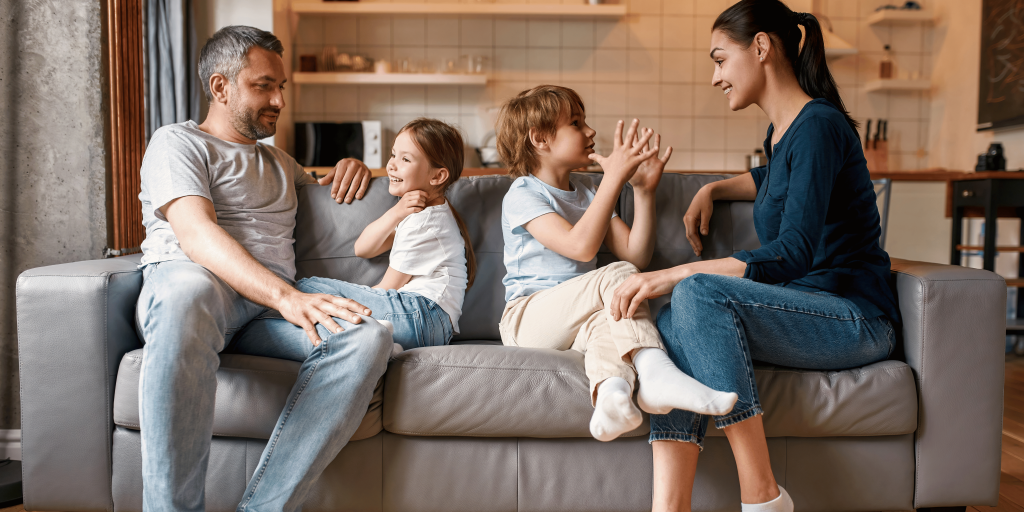
Parent Question:
After a long process, my wife and I have decided to separate. We want to do it right for our two children, aged six and eight, and we are working hard to co-parent well. We are trying to have no conflict or arguments (well as little as possible) in front of the children.
What else can we do for them to ensure they cope well with the new arrangements? I will be moving out in about two months and, fortunately, will be relatively nearby and able to stay very involved as a dad.
Answer:
It is great that you are taking time to reflect about how best to separate and are focused on the needs of your children. Frequently, parental separation can be a stressful conflictual process that takes its toll on children and parents. Even when parents separate amicably with a great deal of thought there can be stressful bumps on the road. Conflicts over money, living arrangements and parenting can come to the fore during a separation.
It is helpful to anticipate these problems and to work had to resolve them as much as possible. Engaging in services such as mediation can be very helpful in achieving this (see free national mediation service – legalaidboard.ie). Below are some more ideas on how to separate well for both for you and your children.
Look after your own mental health
The process of separation usually takes an emotional toll on a parent. Even if you know the separation is a good idea and want it to happen, you may be surprised at how much upset, hurt, grief, anger and guilt might be evoked in you and the other parent. If these emotions take over, they can be damaging and cause you to act unreasonably and to tune out of your children’s needs.
As a result, it is important to be aware of the emotional toll of separation, to anticipate how you might feel and to give yourself time and space to process these emotions. Do seek counselling and personal support as needed.
Communicate well with your children
Once you have made a decision about the separation and are clear about the arrangements, it is important that you communicate this clearly to the children. Ideally this should be initially done by you and their mum together with the children and then to follow up one to one with them.
The key messages that you need to communicate are:
1) that the separation is in no way their fault
2) that you and their mum will always love them and this is not changing.
You also need to clearly explain the arrangements (when, where and how they see both of you etc) and reassure them that you will both be their parents and work together.
Listen to your children
After separation, it is worth having regular “check in” conversations with them one to one, to check how they are feeling about the separation and if they have any questions, etc. Some children readily accept a separation (once relationships are preserved), though many experience grief and loss and some feel inappropriately responsible and harbour a fantasy of their parents getting back together.
It is important to give them space to talk about what is going on for them and to provide support as needed. Rainbows Ireland provide support groups for children in schools who have gone through a separation, as well as webinars for parents.
Communicate well with their mum
The key to co-parenting post-separation is to work hard to reach agreement and to keep children out of your conflicts. While most parents strive to do this, it is easy to inadvertently draw children into conflicts, by making negative comments about the other parent to the children, or asking them to relay a message or even for their support in a dispute (eg, who do you want to spend the holidays with?).
Such involvement is very stressful and damaging for children. As a result it is very important to communicate directly with their mum about disputes and to work hard at negotiating agreements and compromises.
Even if there are ongoing disputes between you and their mum, it is very helpful if your children see you still being respectful and civil towards each other. Simple things like talking politely to each other at handover and sharing news about the children etc, can make a real difference.
Minimise life changes for children post-separation
However you manage it, separation represents a major disruption in the life of children. You can help them cope by keeping the other important things in their lives the same. If possible post-separation, it is best to keep children in the same school, meeting the same friends, attending the same activities and keeping contact with grandparents and extended family (from both sides) with the same frequency.
While you might think a fresh start somewhere else is the best thing for children, research shows that this is not the case. Children do best when they are allowed to keep as much of their original support network as possible.
For more information please see my book Parenting When Separated: Helping Your Children Cope and Thrive.
John Sharry is founder of the Parents Plus Charity and an adjunct professor at the School of Psychology, University College Dublin. This parenting Q&A was originally published in the Irish Times in February 2022. John writes in the Irish Times Newspaper on Tuesdays. His website is www.solutiontalk.ie.
